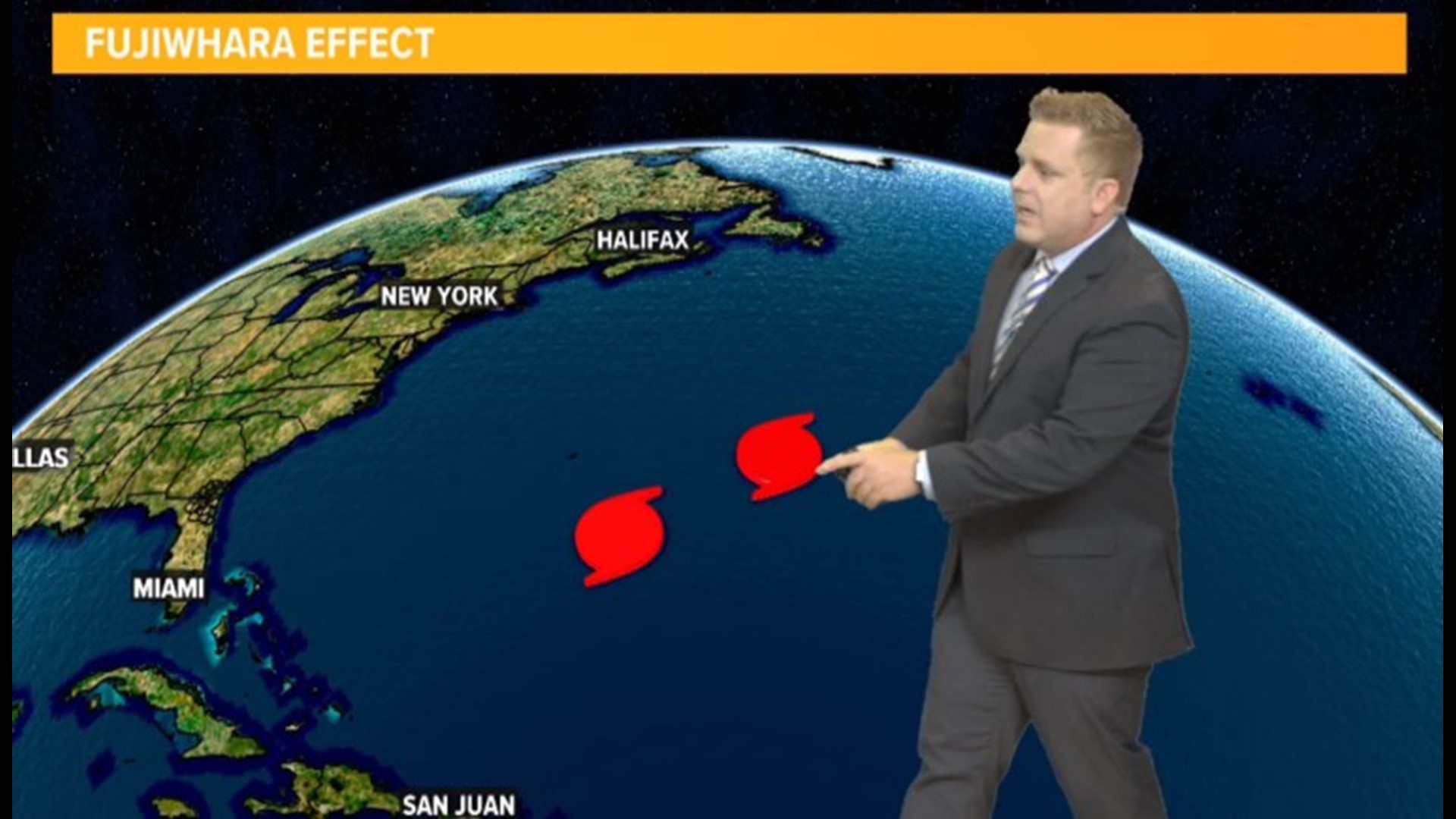JACKSONVILLE, Fla. — A not-too-common site is being seen in the Atlantic here in early September. That is the Fujiwhara effect. This term may not sound very familiar to a lot of people and for good reason. It is rather rare, especially in the Atlantic Ocean. So what is it?
To sum it is up it is when two tropical cyclones within about 1,000 miles of each other start to interact with each other and rotate around a common center. This can create some unusual tracks for storms and make the forecast rather tricky. The larger storm tends to dominate this interaction and can eventually in some cases but not all pull in the smaller storm like a black hole sucking in a star. If both storms are of equal intensity they may even form one large gyre of circulation spreading the energy out over a wide area.


This effect was named after Sakuhei Fujiwhara, a Japanese meteorologist who originally discovered the effect when observing this type of interaction in the water.
This effect although famous when associated with tropical cyclones can also be used when describing a similar interaction in water or general vortices in the air. Basically any time two vortices of similar intensity start to rotate around each other. In rare cases, it can be seen with pairs of tornadoes as well.
The effect can be troublesome for forecasters as weather models often have a hard time handling and forecasting it can be difficult. As far as intensity more often than not the storms may actually weaken instead of strengthening as one would initially think. This is because both rotations would basically shear each other apart while spreading out the energy of their circulations instead of concentrating them in one specific area.

